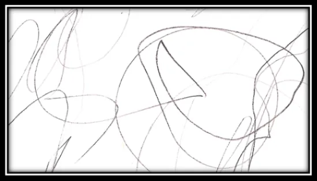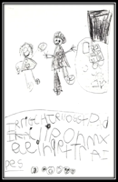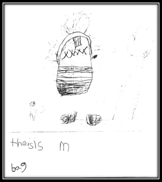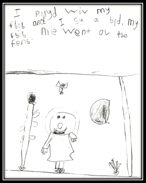Early Writing
Early Writing
At Layton we value writing as an important lifelong skill and recognise how important the Foundation Stage year is to lay the foundational knowledge of transcription (spelling and handwriting) and composition (articulating ideas and structuring them in speech, before writing.)
As children embark on their writing journey, they need to understand that writing has meaning and that the words they write can be read back again. A rich and varied reading curriculum develops children’s understanding that print carries meaning. Parents/carers are provided details of the reading library such that they can support their reading journey at home.
At Layton we recognise that writing develops alongside all learning areas, especially communication and language, reading and mathematics. We value modelled writing opportunities to support children to understand language patterns, develop their thinking skills, solve problems and make sense of their experiences. Vocabulary is purposefully planned for weekly and Makaton is used to support non-verbal communication for all.
When children are developing the skills of writing in Foundation Stage, we believe in teaching and learning that focuses on transcription and composition:
Laying the foundations for composition of writing:
- Language for thinking - Children need to be able to communicate effectively in order to articulate their thoughts and put them into writing. If they can’t say it, they can’t write it. Within the Foundation Stage, children are provided with lots of language rich experiences which encourage the children to talk and develop language both through explicit teaching and continuous provision. Curiosity cubes are used as a resource to inspire wonder about objects they might not be familiar with, promoting discussion with their peers.
All children in Foundation Stage are assessed at the start of the year using WellComm communication assessment tool. This information is used to formulate individualised targets and/or targets that can be achieved as a class. Children who experience a more specific speech and language need work with our Communicate Speech and Language Therapists, based in school 3.5 days a week, or our Speech and Language Learning Support Assistant, based in school 5 days per week.
Children’s composition of writing is supported by reading stories chosen for a range of themes, talking to children, re-phrasing what they have said and modelling correct sentence structure. Children are provided with many opportunities to capture their thinking and structure writing for a range of purposes and audiences (composition). For example, record names of characters in their favourite picture books; make invitations to members of their family for parties, shows or local events. Role play about everyday experiences provide opportunities to write, for example, an office using a keyboard, answering a phone and making notes for Mummy or Daddy. If they go to the shops they may ‘write’ shopping lists for what they need to buy.
Laying the foundations for transcription of writing:
- Gross and fine motor control - The physical skills of writing are dependent on the development of a range of gross and fine motor skills. There are many different specific motor skills which are necessary for a child to write successfully within Foundation Stage including: developing gross motor skills (developing the larger muscles in your arms and core); bilateral integration (using both sides of the body in a coordinated way); fine motor control (developing the small muscles in your fingers and hands); developing dexterity; holding and manipulating a writing tool; writing posture. In Foundation Stage, a ctivities to develop these skills are a crucial part of the journey to becoming a writer.
- Phonic Knowledge - To begin their writing journey, children need to recognise and write the letter sounds using the Layton’s Letters and Sounds Phonics Programme. Alongside this, children receive explicit instruction to write lower case letters in a cursive style. Then, children practise putting these letters together to write simple cvc words (consonant, vowel, consonant). Once children are confident with this they can then progress to simple sentences. I always like to start with ‘I can…’ sentences, e.g. ‘I can hop’, ‘I can sit’, etc. Gradually the sentences can be more complex and the children will start to hear more sounds.
Stages of Learning to Write:
Stage1 -Mark making: Scribbling

At this stage children will usually hold a writing implement in the whole of their hand. They will be exploring the materials without any real purpose but this is a very important stage nevertheless.
Stage 2 - Mark Making -Symbols
At this stage, children will realise that writing consists of symbols and will attempt to copy these by producing shapes, usually lines and circles at first.
Stage 3 - Early Stages of Writing

Features at this stage include:
* Random use of letters.
* Frequent use of letters found in their name.
* Left to right and top to bottom direction.
* Purposeful writing.
* Often children read what they write.
* Recognition of some letters and their name.
* Can’t usually hear initial sounds.
* Continuous text, no spaces or words.
Stage 4 - Intermediate Stage of EYFS Writing

Features Include
* Knowledge about letter shapes and sounds.
* Spaces begin to appear.
* Random use of letters replaced by initial and perhaps end and middle sounds and some known whole words.
* Full stops used but not always in the right place.
* Children will read their own writing.
* Writing doesn’t always make sense.
Stage 5 - Writing that meets Early Learning Goals - Expected

Features Include
* Spelling attempts become readable.
* Letter formation moves towards correctness.
* Sentence starts with a capital letter and ends with a full stop.
* Composition progresses.
* Better sequencing of ideas and events at greater length.
* Writing for more purposes.
* Children may read back, review and make changes.
